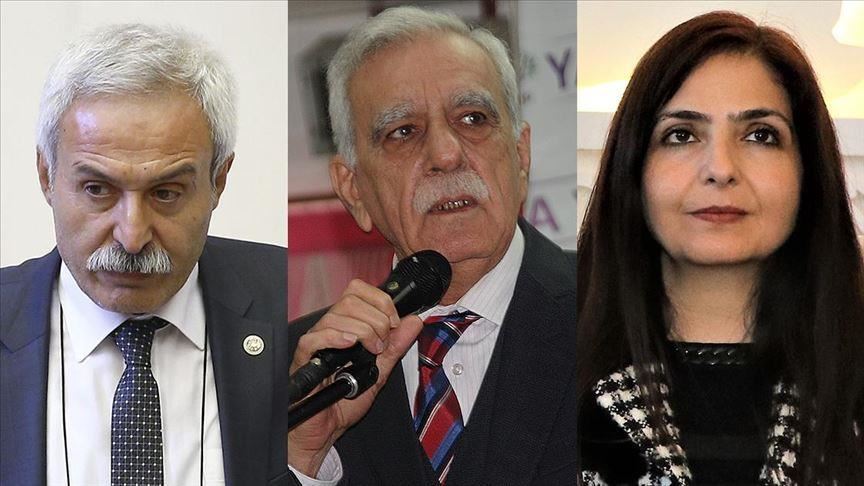
Liberal delusions about ethno-terrorism in Turkey
The public debate over the dismissal of three mayors rages on in Turkey. Observers concentrate on the various legal and political dimensions of what happened..
Share
The public debate over the dismissal of three mayors rages on in Turkey. Observers concentrate on the various legal and political dimensions of what happened.
A popular argument among critics of the administrative decision is that the terrorist organization PKK welcomes it. Critics note that terrorist groups "feed off restrictions" and are "unsettled by democratic inclusion." Consequently, they say that "criminalizing and excluding the Peoples' Democratic Party (HDP) play into the hands of PKK leaders."
That argument makes sense on a superficial level. In the face of real world practices, however, it is highly problematic. Advocates of this view misread Turkey's experiences and the regional and international context of the country's fight against the PKK.
The key objective of any effort to combat separatist ethno-terrorism is to isolate the group on the international level and within the ethnic group that it seeks to dominate. The cases of the IRA, ETA, the Tamil Tigers and the PKK attest to the difficulty of attaining that goal.
Obviously, the Kurdish community's integration into democratic politics is key to Turkey's ongoing fight against the PKK. For that reason, the HDP and its predecessors have been allowed to operate since the 1990s. Successive Justice and Development Party (AK Party) governments proceeded to meet many of the Kurds' ethnic demands by implementing reforms and launching two peace processes, in 2009 and 2013, to disarm the PKK.
Having made certain "accomplishments" in northern Syria, the PKK concluded that the situation had changed and derailed the peace process in 2015. The group, in cooperation with HDP-controlled municipalities, dug trenches in town centers across eastern and southeastern Turkey. Its stated purpose was to "carry on the Rojava revolution in Turkey through a people's war." During this period, the PKK hurt Turkey's Kurds and the HDP, their self-appointed "representatives," more than anyone. The HDP thus ended up being reduced to an organization that carried out the PKK leadership's orders and failed to distance itself from the group.
The driving force behind the peace process' collapse was Washington's partnership with the PKK and its Syrian component, the People's Protection Units (YPG), in the name of fighting Daesh. It was simply impossible to convince the PKK, which reinforced its long-standing presence in Iraq and Syria with U.S. military support, to lay down its arms.
Let us recall that the IRA and ETA disarmed when Ireland and France, respectively, cut them off. Nor did Spain's decision to grant autonomy as a concession to ETA terrorism curb violence. If anything, it encouraged Basque nationalists to further their separatist agenda. In the end, Spain shut down the Herri Batasuna political coalition, citing the party's failure to distance itself from ETA terrorists.
For the record, I do not suggest that Turkey should ban the HDP. Instead, the HDP leadership must be encouraged to take a stand against PKK – just as Sinn Fein managed to distance itself from the IRA. The government and opposition parties must mount pressure on the HDP to accomplish that goal.
After all, there are still many obstacles before the PKK's complete eradication. The situation in Iraq and Syria creates fertile ground for terrorist activities. The United States and the European Union continue their direct and indirect support for the group. Finally, the PKK remains able to recruit new militants in Turkey.
It is true that Kurdish nationalists must be integrated into democratic life. In a way, they already are. Yet the HDP cannot be allowed to break its isolation until it agrees to distance itself from the PKK terrorists.
The problem in Turkey today is not the HDP's integration into the political system. Quite the contrary, there is an effort to treat the HDP as a "normal" entity at the expense of Turkey's counterterror efforts. The struggle against ethno-terrorism will suffer serious setbacks if politicians and the general public mitigate their "democratizing pressure" on the HDP.
That dialogue is the solution to the Kurdish question or mounting pressure on the HDP will serve the PKK's interests are merely liberal delusions. Any attempt to engage in dialogue with the PKK before its ability to engage in acts of terrorism would reward it with a political base. The idea that the PKK, enjoying as much international support as it currently does, would even think about disarming is nothing more than a liberal fantasy.
[Daily Sabah, 24 August 2019]
Tags »
Related Articles







